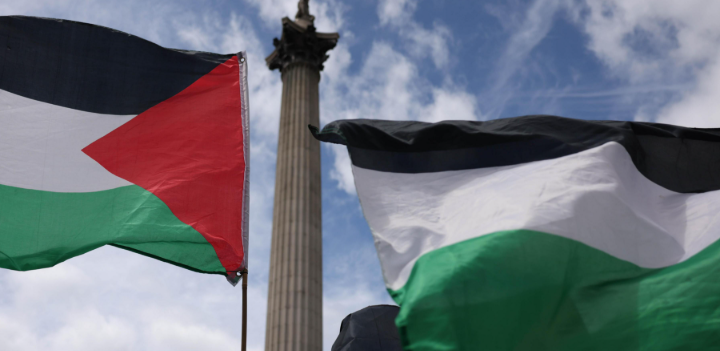Best Free Resources for Traders in 2025: From Charts to AI Alerts
December 01 , 2025

Palestinian diplomats are navigating a shifting international landscape as France and the United Kingdom upgrade their relations with Palestine. This development reflects evolving diplomatic strategies, geopolitical considerations, and implications for Middle East peace efforts.
Palestinian diplomats are entering a new era as France and the United Kingdom move to upgrade their diplomatic relations with Palestine. This shift marks a significant milestone in international recognition and presents both opportunities and challenges for Palestinian foreign policy efforts. Analysts suggest that these developments may influence Middle East diplomacy, negotiations, and regional alliances.
For decades, Palestinian diplomats have worked to gain international recognition and strengthen bilateral relationships with countries across Europe, the Middle East, and beyond. Diplomatic efforts have focused on promoting Palestinian statehood, securing humanitarian aid, and participating in international organizations such as the United Nations.
The diplomatic landscape has often been complicated by political tensions in the region, conflicting international policies, and ongoing disputes with Israel. Nonetheless, persistent efforts by Palestinian officials have gradually increased recognition and support from several countries.
Recent moves by France and the United Kingdom to upgrade their relations with Palestine represent a notable diplomatic shift. Both countries have expanded their diplomatic engagement, signaling stronger political recognition and willingness to support Palestinian initiatives on the international stage.
These upgrades involve increased diplomatic channels, enhanced political cooperation, and potentially greater economic and cultural engagement. For Palestinian diplomats, these developments provide a platform to amplify their voice in international forums and advance strategic objectives.
The upgrades in diplomatic relations carry significant implications for Palestinian diplomats. Key areas affected include:
For diplomats, these changes necessitate careful strategic planning, effective communication, and the ability to navigate evolving political landscapes.
Despite the positive developments, Palestinian diplomats face several challenges in leveraging upgraded relations. These include:
Addressing these challenges requires skillful negotiation, strategic planning, and diplomatic acumen.
The upgraded relations with France and the UK have broader implications for Middle East diplomacy. Enhanced support from influential European nations may encourage other countries to strengthen ties with Palestine, potentially reshaping regional alliances and international policy dynamics.
These developments also impact peace efforts, as increased diplomatic recognition can provide leverage in negotiations with Israel and international mediators. Palestinian diplomats may use these strengthened relationships to advocate for human rights, territorial agreements, and economic cooperation.
Reactions to France and the UK upgrading relations with Palestine have been mixed. Supporters argue that the moves reflect international acknowledgment of Palestinian statehood and a commitment to peaceful resolution of regional conflicts. Critics caution that enhanced engagement may complicate relations with Israel and risk tensions in broader diplomatic frameworks.
Media coverage has highlighted the strategic importance of these diplomatic upgrades, emphasizing both the opportunities for Palestinian foreign policy and the challenges inherent in managing complex international relationships.
In response to the changing diplomatic environment, Palestinian diplomats are adopting strategic approaches, including:
These strategies aim to maximize the benefits of strengthened relations while mitigating potential challenges.
Beyond political implications, upgraded relations with France and the UK may create economic and social opportunities for Palestinian communities. These include increased access to funding for development projects, educational programs, and cultural initiatives. Diplomatic engagement may also facilitate international partnerships that support entrepreneurship, innovation, and local capacity-building.
By fostering sustainable development, Palestinian diplomats can strengthen social stability and enhance the quality of life for communities under their representation.
The decision by France and the United Kingdom to upgrade relations with Palestine marks a pivotal moment for Palestinian diplomacy. It provides new avenues for political leverage, international recognition, and strategic advocacy. At the same time, it presents challenges that require careful management, strategic planning, and effective communication.
As Palestinian diplomats navigate this evolving landscape, their efforts will be critical in advancing national interests, supporting peace initiatives, and promoting global engagement. The changes signal a new era in Palestinian diplomacy, reflecting both opportunities and responsibilities on the international stage.